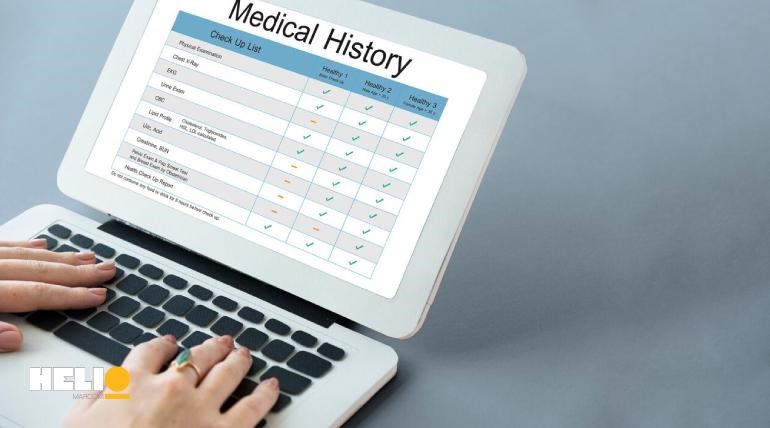The healthcare sector has seen monumental shifts in how it reaches and engages with patients. In an era of technological advancements and digital connectivity, traditional marketing methods are giving way to more sophisticated, data-driven approaches. To keep up with these changes, healthcare professionals, marketers, and start-ups must understand the pivotal role of digital marketing in the healthcare landscape.
This guide from Helio marketing agency will give you the insight for navigating this rapidly evolving terrain, ensuring your strategies are practical and future-proof.
What is Digital Marketing?
Digital marketing encompasses using digital channels such as social media, email, search engines, and websites to promote products and services. It provides a strategic approach to reach targeted audiences with tailored messages, enhancing engagement and driving conversions.
Common Digital Marketing Mediums
- Social Media: Platforms like Facebook, Twitter, LinkedIn, and Instagram offer avenues for healthcare providers to connect with patients, share information, and build community.
- Email: Email marketing campaigns inform patients about updates, services, and health tips, fostering continuous engagement.
- Search Engines: Search engine optimization (SEO) ensures that healthcare websites rank high in search results, increasing visibility.
- Websites: A well-designed website is the central hub for all digital marketing activities, providing valuable information and facilitating patient interactions.
Healthcare Digital Marketing: The Past, Present, and Future
Over the past decade, digital marketing has seamlessly integrated into the healthcare sector, transforming how services are marketed and delivered. Initially, healthcare providers relied on traditional methods such as print advertisements, billboards, and word-of-mouth to reach potential patients. As healthcare consumers become more tech-savvy and demand instant access to information, digital marketing has evolved from a complementary tool to an essential component of successful healthcare operations.
Traditional Marketing in Healthcare
In the mid-1990s, healthcare providers began to adopt simple websites to disseminate information. These early efforts were rudimentary but set the stage for the digital transformation that followed. Traditional marketing methods at the time primarily relied on print media, television ads, and direct mail campaigns.
While these methods were effective to a degree, they often needed more precision targeting and measurable results that digital marketing later provided. The shift to digital was driven by the need for more efficient, cost-effective, and patient-centric ways to reach wider audiences.
Digital Transformation of Healthcare Marketing
Today, digital marketing is an integral part of the healthcare industry. Many providers employ content marketing, search engine marketing, social media marketing, and digital paid advertising to connect with patients and enhance their services. These digital strategies allow for tailored messaging, real-time engagement, and tracking performance through analytics. As a result, healthcare organizations can make data-driven decisions to optimize their marketing efforts, creating a more personalized and practical patient experience.
Evolving Trends in Digital Marketing for Health and Wellness
The decline of traditional marketing methods is imminent as digital marketing becomes increasingly critical for attracting and retaining patients. Healthcare providers must continue to innovate and adapt to remain competitive. This includes leveraging new technologies such as artificial intelligence, machine learning, and advanced analytics to enhance marketing strategies. For instance, industries like aviation digital marketing demonstrate how tailored digital approaches can effectively engage audiences in highly specialized fields—a strategy healthcare providers can also adopt. By staying ahead of these evolving trends, healthcare organizations can ensure they continue to meet the needs of their patients in an ever-changing digital landscape.
Importance of Digital Marketing for the Healthcare Industry
Digital marketing is no longer optional; it’s essential. Here’s why:
Impact of Technological Growth
Technological advancements have dramatically transformed healthcare marketing. Technology is reshaping how healthcare providers interact with patients from telemedicine to AI-driven diagnostics.
Additionally, digital marketing for medical devices is revolutionizing how these products reach and engage with healthcare professionals and consumers, ensuring they are informed about the latest innovations and their benefits.
Increased Online Searches
Patients are increasingly turning to the Internet for medical information. A solid online presence ensures that healthcare providers can meet patients where they are searching.
Growing Trend of Adoption
More healthcare providers are recognizing the benefits of digital marketing and investing in it to stay ahead of the curve.

Benefits of Digital Marketing in the Healthcare Industry
The benefits of digital marketing in healthcare are vast, including:
1. Strengthen Relationships
Enhanced communication between healthcare brands and patients builds trust and fosters long-term relationships. When patients feel heard and understood, they are likelier to remain loyal and recommend the service to others.
2. Reduce Marketing Budget
Digital marketing is cost-effective compared to traditional methods, offering better ROI. By leveraging online channels, healthcare brands can reach a wider audience without the high costs associated with print, TV, and radio advertising.
3. Target Marketing Efforts
Precise targeting ensures that marketing activities reach the right audience at the right time. Advanced analytics and data-driven strategies enable healthcare providers to focus their efforts on the most relevant demographics, increasing the effectiveness of their campaigns.
4. Improve Brand Metrics
Digital marketing enhances brand awareness, reputation, and perception, positioning healthcare providers as industry leaders. A consistent and strategic online presence helps build a strong brand image and earns the trust of potential patients.
5. Optimize Customer Experience
Digital marketing maximizes convenience and efficiency for patients, improving overall satisfaction. Through user-friendly websites, informative content, and seamless online services, healthcare providers can offer a superior patient experience.
6. Personalize Marketing Activity
Tailored marketing approaches meet individual patient needs more effectively. Personalized emails, targeted ads, and custom content can address specific concerns and preferences, making patients feel valued and understood.
7. Flexible Marketing Campaign
Multiple mediums allow for better alignment with client interests and preferences. Healthcare providers can create versatile campaigns that adapt to changing trends and patient behaviors by combining social media, email marketing, content marketing, and more.
Investing in Digital Marketing for Your Healthcare Business
When implementing digital marketing, businesses can choose between in-house efforts and hiring an agency. To maximize results, it’s crucial to select an experienced agency specializing in healthcare.
Find the Best Digital Marketing Strategy for the Healthcare Industry
Investing in digital marketing for your healthcare business, can improve patient relationships, increase brand awareness, optimize the customer experience, and stay ahead of industry trends.
1. Optimize for Search (SEO)
Significance of SEO: SEO is crucial for driving traffic to healthcare websites, enhancing visibility, and boosting patient engagement.
Key Techniques: Effective SEO strategies include mobile optimization and accommodating voice search functionalities.
2. Produce Engaging Video Content
Power of Video Marketing: Video content captivates patients by providing a dynamic medium to share stories and educational information.
3. Engage through Social Media
Social Media’s Role: Platforms like Facebook and Twitter enable organic and paid strategies to foster patient and physician engagement.
4. Create Highly Personalized Campaigns
Impact of Personalization: Personalized marketing campaigns resonate more deeply with patients. Leveraging healthcare CRM platforms can help craft targeted messages.
5. Prioritize Analytics
Importance of Data Analysis: Monitoring and analyzing performance metrics is essential for measuring marketing success while ensuring compliance with privacy regulations.
6. Update Your Email Strategy
Optimized Email Marketing: Ensure your emails are mobile-friendly and have valuable educational content to maximize their impact.
Elevating Healthcare Through Digital Marketing with Helio
Understanding the importance of digital marketing in the healthcare industry is crucial for staying competitive. By investing in strategic digital marketing efforts, healthcare providers can improve patient engagement, optimize their marketing budget, and strengthen their brand.
The future of digital marketing for healthcare professionals is bright, with endless opportunities for innovation and growth.
Ready to elevate your healthcare business? Invest in Helio’s healthcare digital marketing solutions today and unlock new potential for your practice. If you need more information about digital marketing cost in dubai contact with us in Helio.
For more insights and expert guidance, contact us to get started on your journey toward digital marketing excellence.





